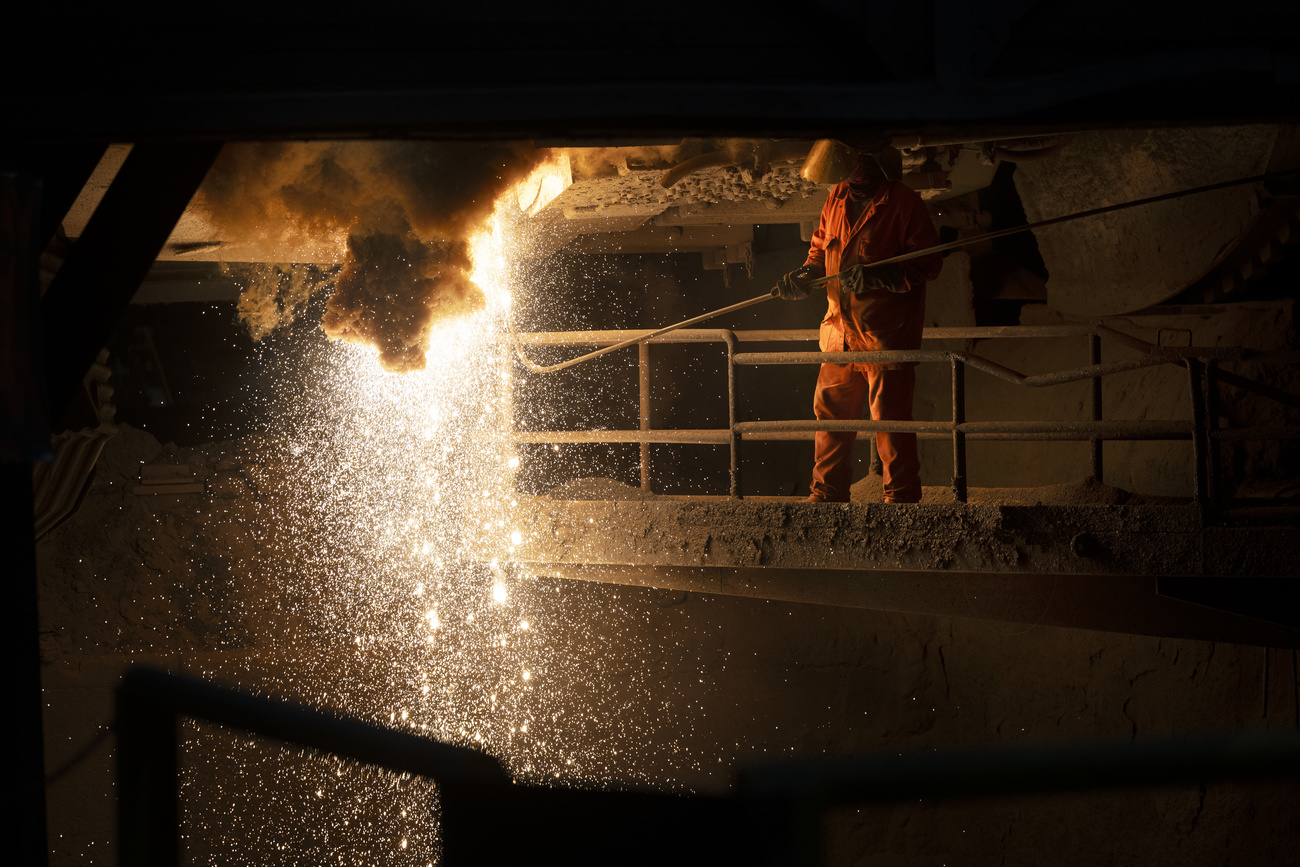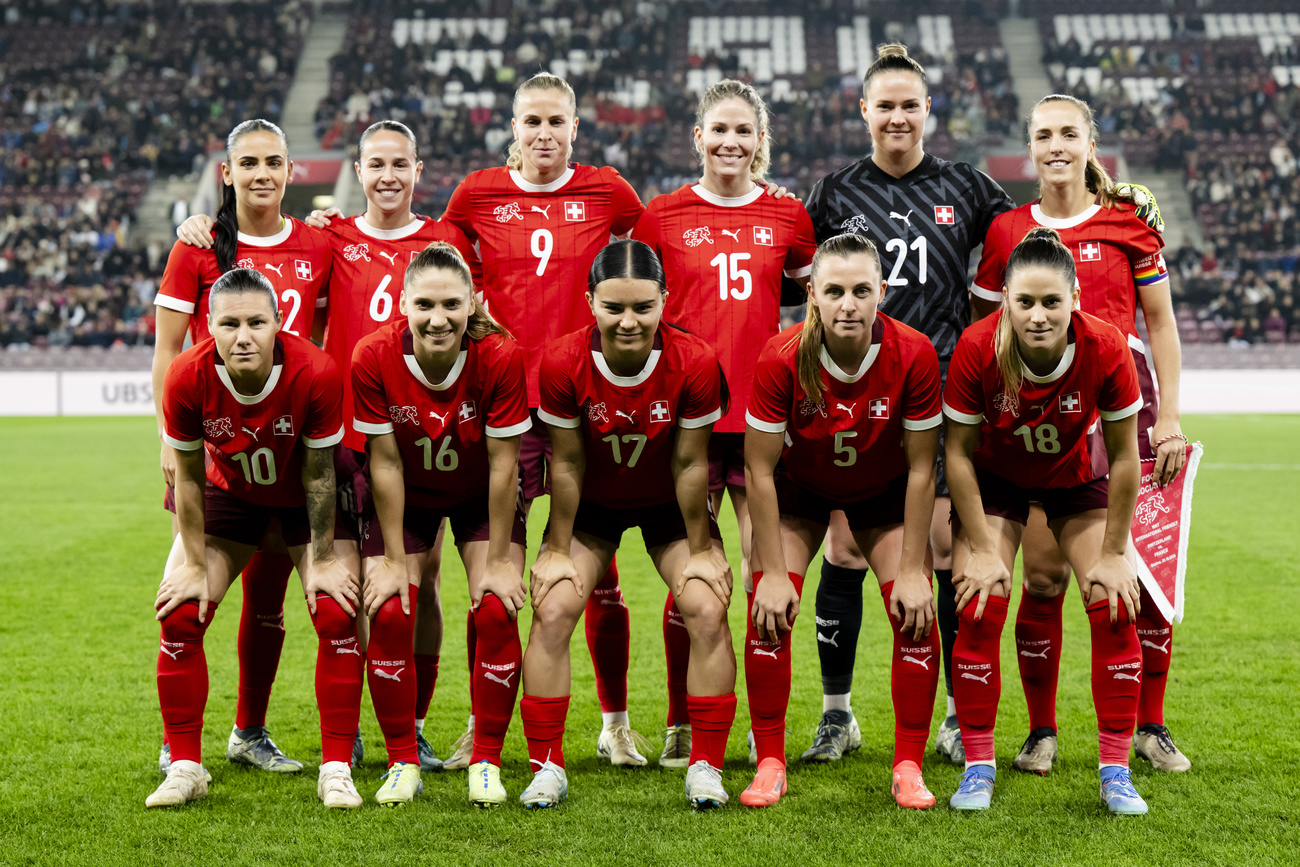

Switzerland Today
Dear Swiss Abroad,
The winter session of parliament has reached its final week, but the pace remains relentless. Several significant decisions were made earlier in the week, including a ban on Hezbollah and an increase in the minimum health insurance deductible. Both topics have generated lively debate, with implications for public safety and healthcare policy in Switzerland.
Another important step has been taken on the issue of stalking. Victims of stalking often suffer greatly, but until now, proving such cases has been challenging. The newly proposed legislation would make stalking a criminal offence if it restricts another person’s ability to organise their life freely.
To lighten things up, we’ll take a quick detour to the Eurovision Song Contest in Basel, where exciting details about the event have emerged. Also, in women’s football, the Swiss team has learnt who their first opponents will be at next year’s Swiss-hosted European Championships.
Best wishes from Bern.

‘Prices will fall’: Swiss pharmaceutical company Sandoz to enter the syringe market by 2026
The leaders of major pharmaceutical companies are often known for prioritising high prices to maximise profits. Richard Saynor, however, offers a contrasting perspective. As the head of Sandoz, a Swiss company specialising in generics and biosimilars, he emphasised “We are not Big Pharma!” in an interview with CH Media.
Sandoz, which split from its parent company Novartis last year, aims to disrupt the market for injection lipolysis syringes by 2026. Injection lipolysis is a cosmetic procedure in which drug mixtures are injected into patients with the goal of destroying fat cells, a practice which evolved from the initial intravenous use of those drug formulations to treat blood disorders. These injections, typically used for weight management, are currently costly, but Saynor says: “Prices will fall with our copycat products.” The introduction of these more affordable options is expected to benefit patients and healthcare systems alike.
Saynor also highlights a growing concern in the industry: the environmental impact of disposable syringes. Each year, 100 million injection pens made of plastic, glass and metal are discarded. He stresses the urgent need for an eco-friendly disposal solution, a challenge the company is actively addressing.
During the interview, Saynor, a UK native currently based in canton Zug, also criticised European governments for contributing to drug shortages by hoarding medicines for up to six months instead of adopting cross-border exchange mechanisms. These practices create inefficiencies in supply chains, he said in the interview.
- The full interview by CH Media, available via WatsonExternal link (in German)
More

Minimum health insurance deductible to increase, with parliament also approving aid for the steel industry
Swiss citizens could soon see an increase in the minimum deductible for health insurance. Both the Senate and the House of Representatives have now agreed in principle to raise the current minimum of CHF300 to a new threshold, potentially between CHF350 and CHF400 ($391 and $447). The proposal is aimed at reducing healthcare costs by encouraging individuals to take greater personal responsibility and avoid unnecessary doctor visits.
While centre-right politicians champion the measure as a necessary step for cost containment, critics, particularly from left-leaning parties, argue it will disproportionately burden low-income households and people with chronic illnesses. Health Minister Elisabeth Baume-Schneider has expressed cautious support for the initiative, stating: “We must proceed very carefully, especially with those who avoid going to the doctor due to financial constraints.”
In other news, the Senate has greenlit emergency aid for struggling Swiss steel and aluminium manufacturers. Four companies, including the steel plants in Gerlafingen (canton Solothurn) and Emmenbrücke (canton Lucerne), as well as two aluminium facilities in canton Valais, will benefit from subsidised electricity rates. These measures are designed to protect vital industries facing competitive and economic pressures.
- Article on increasing the minimum deductible WatsonExternal link (in German)
- Articles about the steelworks Neue Zürcher Zeitung (NZZ)External link (in German)

Parliament bans Hezbollah and moves to criminalise stalking
Switzerland continues to make significant decisions on matters of national and international importance.
Following last week’s parliamentary vote to ban Hamas, lawmakers have now approved a similar motion to ban Hezbollah. The Lebanese Shia militia, deemed a terrorist organisation by many Western countries, has been implicated in numerous acts of violence and human rights violations. The security policy committee, which proposed the motion, emphasised the need for a consistent approach to countering terrorism.
In addition, parliament has taken a step to address stalking, an issue that has long been difficult to prosecute under Swiss law. The new legislation, if passed, would criminalise persistent harassment, threatening behaviour, or actions that restrict a victim’s ability to organise their life freely. Offenders could face fines or imprisonment of up to three years. Importantly, the draft law states that proving a pattern of behaviour with the potential to restrict personal freedom would suffice for prosecution, easing the burden on victims.
- For more coverage, refer to the news ticker by Swiss public television, SRFExternal link (in German)
- Article in Le TempsExternal link (in French)
- Article in the Tages-AnzeigerExternal link newspaper (in German).

Swiss women’s football team to face Nordic opponents at home European Championships
Next year promises to be an exciting one for Switzerland, with two major international events on the horizon. The Eurovision Song Contest (ESC) will take place in Basel in May, followed by the Women’s European Football Championships in the summer.
Preparations for the ESC are well underway. The event’s logo and stage design feature iconic Alpine themes, and the official motto, “Welcome Home”, highlights Swiss hospitality. The soundtrack will incorporate traditional Swiss elements like yodelling and alphorns. Ticket sales begin on January 29, with pre-registration open until January 10. Prices for the final go up to CHF350 ($391).
Meanwhile, the Swiss women’s national football team has been drawn in Group A for the European Championships. They will face Norway, Finland and Iceland, all formidable teams from the north. While experts believe Switzerland avoided the toughest possible group, these opponents should not be underestimated. Norway boasts a strong football legacy, having won the Women’s World Cup and multiple European titles, albeit several decades ago.
- Article on the Eurovision Song Contest by 20 MinutenExternal link (in German)
- Article about the Swiss women’s national football team by NauExternal link (in German)

Picture of the day
As the shortest days of the year envelop Switzerland, moments of natural beauty stand out. Today’s image captures the striking blue hour over Zurich’s Münsterbrücke, offering a serene contrast to the bustling season.
Translated from German using DeepL/amva/ts

In compliance with the JTI standards
More: SWI swissinfo.ch certified by the Journalism Trust Initiative

























